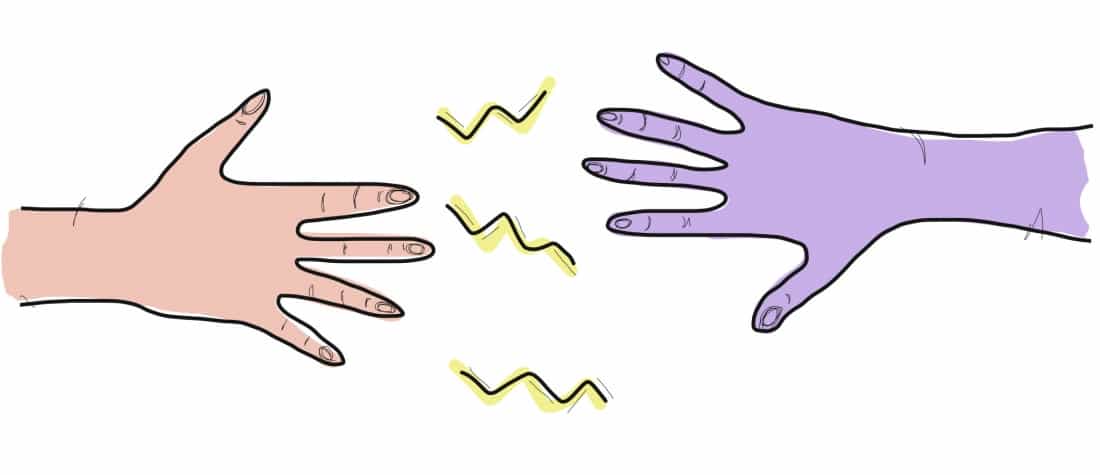 In our lives, as we move through different spheres, we wear different parts of ourselves in different ways. Sometimes, you have to be professional, sometimes you have to be studious, and sometimes you have to wear a sweater to your grandmother’s house and pretend you like it.
In our lives, as we move through different spheres, we wear different parts of ourselves in different ways. Sometimes, you have to be professional, sometimes you have to be studious, and sometimes you have to wear a sweater to your grandmother’s house and pretend you like it.
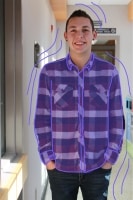
“I’m not really wearing [my sexuality] in academia — I don’t think it’s not important — but I don’t think it’s too much of a big deal. You should be yourself and be happy.”
Jeremy Storring, psychology
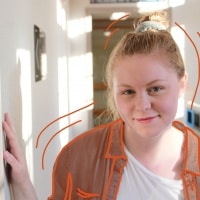
“It’s important to bring forth those kinds of perspectives, because maybe they weren’t explored previously.”
Olenka Kawchuk, archaeology
Most of the time, it’s relatively simple to navigate our multifaceted identities through our various professional, academic, social and creative lives. When parts of our identities are more difficult to separate and don’t quite fit into all of these life categories smoothly, things get — to say the least — a little more difficult.
Queerness, as we know and interact with it in society today, still exists as one of those identity facets that no one is quite sure how to manoeuvre through the many different roles we play as individuals.
What does it mean to be a queer academic? Do our queer identities still impede us in classrooms? Do we wear our sexuality in different ways to adapt to a norm?
We live in a rapidly changing world. Social and political change is happening all around us, and often — at least in our immediate environment — that rapid change facilitates positive progress for queer issues. It’s easier to be queer than ever before, but we’ve got a long way to go.
More and more, it is becoming especially apparent that there are aspects of academia lagging behind in this progress. There are gaps in queer perspectives across disciplines, and queer people still feel ostracized or unsure in the spaces where they should feel the most confident.
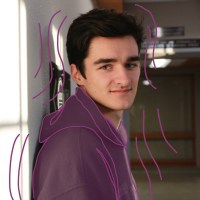
“The fact that queer issues can’t always be talked about in academia, or aren’t taken seriously in academia, isn’t even just a problem for queer people but for everybody.”
Christian Pollock,
political studies
We can start to solve these issues with more qualitative analyses of individuals’ experiences. Simply put, we need to keep talking about our experiences, and we need to keep building safe environments for others to do so as well.
By speaking with a handful of LGBTQ+ students at the University of Saskatchewan about the issues of identity performance and presentation on campus, I was privileged to hear a number of opinions formed by individual experiences.
Emily Klatt, a fourth-year English student, identifies as bisexual and most often feels comfortable presenting herself in a conventionally feminine way.
“It’s really important for me to recognize that I have a lot of privilege — my queerness is palatable to society — I have the ability to come out safely and to talk about being queer without fearing for my own safety,” Klatt said.
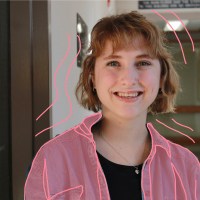
“My queerness is palatable to society — I have the ability to come out safely and to talk about being queer without fearing for my own safety.” Emily Klatt, English
Though she has not experienced direct negative feedback or negative encounters regarding her sexuality within the academic setting, she notices that class material does not afford the same safety and comfort to other individuals.
“Very rarely, [in academic material], is there inclusion about trans people or fluid sexuality — something different than just gay or straight — and I think that lack of representation does make it harder to feel like you aren’t an outlier,” Klatt said.
Pride Centre Co-ordinator Kenny Starling feels awkward when they have to explain their identity perspective.
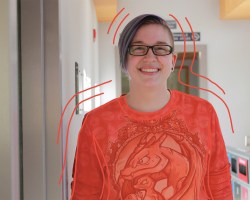
“Most classes are very hetero-normative or very cis-normative so being like, ‘Actually there’s another viewpoint,’ can be very uncomfortable.”
Kenny Starling,
Pride Centre Co-ordinator
“Most classes are very hetero-normative or very cis-normative, so being like, ‘Actually there’s another viewpoint,’ can be very uncomfortable,” Starling said.
Olenka Kawchuk, a third-year archaeology student, is not usually outspoken about her sexual and gender identity, but she believes that there is always a way to integrate queer perspectives across disciplines.
“It’s important to bring forth those kinds of perspectives, because maybe they weren’t explored previously, even though gender-nonconforming people or queer people have existed since forever,” Kawchuk said.
Jeremy Storring, a first-year psychology student, doesn’t notice any direct barriers to his academic success as a result of his sexuality, and feels that sexual identity is something an individual should decide on their own to show or not show.
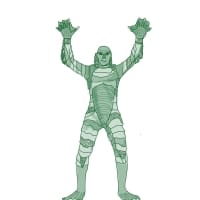
“There’s always that nagging [background] voice that’s questioning, ‘Are you presenting [as] overly masculine, because you’re still trying to overcome interior homophobia? Are you just presenting this way, because you’re trying to avoid being questioned?’”
Burt Bixley,
political studies
“I’m not really wearing [my sexuality] in academia — I don’t think it’s not important, but I don’t think it’s too much of a big deal. You should be yourself and be happy,” Storring said.
Meg Land, a student in the College of Education, has struggled to feel valid in her queer identity but marks campus culture as integral to her present self-assuredness.
“On campus, I’ve never felt like I had to hide that I was queer. It was always the place where I didn’t have to — there [are] queers everywhere,” Land said.
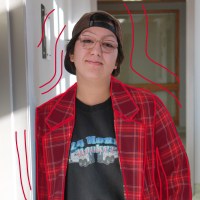
“There’s so many things about myself that are underrepresented in academia, I’m queer, I’m brown, I own a vagina.”
Ana Sylvester,
arts and science
Christian Pollock, a fourth-year political studies student, worries that being more outright with his sexual identity might limit his ability to be taken seriously as an academic.
“I feel like I couldn’t do research on queer theory or queer issues, because then my identity could come into question, and there [are] all those consequences that come from that,” Pollock said.
Pollock feels that this limitation on LGBTQ+ individuals is not beneficial to social development.
“The fact that queer issues can’t always be talked about in academia, or aren’t taken seriously in academia, isn’t even just a problem for queer people but for everybody — because then none of us can talk about it, and none of us can be taken seriously,” Pollock said.
Bailey Christopherson, a fourth-year English student, is comfortable being a queer academic and is creative with her gender expression but recently dropped a class with a professor who she felt did not respect her identity.
“Yes, [classes are] more professional, but I don’t think that means you have to be a different person than what you are — you shouldn’t have to tone yourself down, and you shouldn’t have to censor how you speak in classrooms or hide your identity,” Christopherson said.
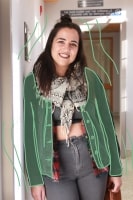
“On campus, I’ve never felt like I had to hide that I was queer. It was always the place where I didn’t have to — there’s queers everywhere.”
Meg Land, education
Ana Sylvester, a student in the College of Arts and Science, lends their identity to class discussion often, because they feel a need to speak up.
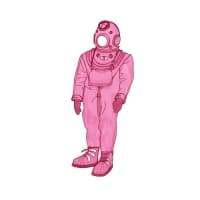
“You shouldn’t have to tone yourself down, and you shouldn’t have to censor how you speak in classrooms or hide your identity.”
Bailey Christopherson,
English
“There [are] so many things about myself that are under-represented in academia — I’m queer, I’m brown, I own a vagina — so I talk about those things about myself all the time, because someone has to,” Sylvester said.
Sylvester feels power in their ability to be outspoken, but they find themselves tokenized in classes.
“People want to ask you all of these questions that Google and academic articles exist for — I get that it’s nice to have a first-hand experience, but at the same time, how long do I have to be the only person to speak up in a 300-person class?” Sylvester said.
Burt Bixley*, a fourth-year political studies student, identifies as a gay man. He doesn’t always speak up in class and is fortunate for his ability to choose not to.
“I have a little bit of extra privilege — I can thread the needle, per say. When there are issues that are particularly contentious, I don’t have to participate. There’s no social pressure to contribute,” Bixley said.
However, Bixley wonders if his physical means of expression may have emerged as a means of self-defense.
“With the way that I present, there’s always that nagging [background] voice that’s questioning, ‘Are you presenting [as] overly masculine, because you’re still trying to overcome interior homophobia? Are you just presenting this way, because you’re trying to avoid being questioned?’” Bixley said.
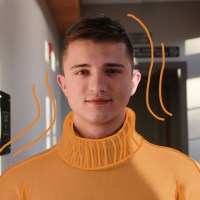
“By wearing it strongly, you put yourself into this one box, and there’s the danger that you’re going to just become ‘the queer one.’”
Joshua Brand, philosophy
Joshua Brand, a fourth-year philosophy student, disconnects his queer identity from his academic one.
“By wearing it strongly, you put yourself into this one box, and there’s the danger that you’re going to just become ‘the queer one’ — it’s necessary, because it needs to be introduced, but it shouldn’t be the end goal,” Brand said.
All of these people make pretty good points. Sometimes, it’s dangerous to wear your identity, and sometimes, you just don’t feel like bearing its weight.
There continues to exist a series of systemic barriers and stigmas surrounding sexual and gender identities and the way individuals choose to express themselves — but maybe, as we keep talking, we’ll start to open some more closed doors.
*To respect the privacy of the individual interviewed, his name has been changed.
—
Graphics and text: Emily Migchels / Opinions Editor
Photographic Illustrations: J.C. Balicanta Narag, Photo Editor, and Emily Migchels, Opinions Editor
Leave a Reply